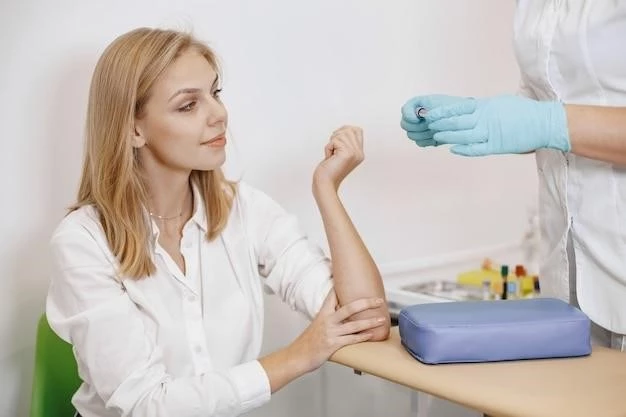Symptoms of Chromosome 4 Short Arm Deletion
Common Symptoms include developmental delays and seizures.
Common Symptoms
Common Symptoms of Chromosome 4 Short Arm Deletion may consist of growth delays, intellectual disabilities, distinctive facial features, and behavioral issues such as autism spectrum disorder.
Less Common Symptoms
Less Common Symptoms of Chromosome 4 Short Arm Deletion can include heart defects, hearing loss, vision problems, and musculoskeletal issues like scoliosis or joint abnormalities.
Causes of Chromosome 4 Short Arm Deletion
Genetic Mutation and Deletion of Genetic Material.
Genetic Mutation
The main cause of Chromosome 4 Short Arm Deletion is a genetic mutation that results in the loss of genetic material on the short arm of chromosome 4. This deletion can lead to various developmental and health issues in affected individuals.
Inheritance
Chromosome 4 Short Arm Deletion is typically not inherited but occurs sporadically as a random event during the formation of reproductive cells. However, in rare cases, it can be inherited from a parent who carries the chromosomal abnormality.
Diagnosis of Chromosome 4 Short Arm Deletion
Genetic Testing and Physical Examination are key methods.
Genetic Testing
Genetic Testing such as chromosomal microarray analysis or FISH (fluorescence in situ hybridization) is crucial to confirm Chromosome 4 Short Arm Deletion. These tests help identify specific genetic abnormalities and guide appropriate medical management and interventions for affected individuals.
Physical Examination
A thorough Physical Examination, including assessing growth parameters, facial features, organ function, and developmental milestones, is essential in diagnosing Chromosome 4 Short Arm Deletion. Physical signs observed during examination help healthcare providers determine the need for further genetic testing and intervention strategies tailored to the individual’s needs.
Treatment Options for Chromosome 4 Short Arm Deletion
Early Intervention Services and Medical Management.
Early Intervention Services
Early Intervention Services are crucial for children with Chromosome 4 Short Arm Deletion to address developmental delays and provide therapies such as physical, occupational, and speech therapy. These services aim to support the child’s overall growth and development, maximizing their potential and improving quality of life.
Medical Management
Medical Management for Chromosome 4 Short Arm Deletion involves a multidisciplinary approach with specialists such as geneticists, neurologists, and developmental pediatricians collaborating to provide personalized care. Treatment may include medications for seizures, behavioral therapies, and addressing any associated health issues to optimize the individual’s well-being.

Prognosis of Chromosome 4 Short Arm Deletion
Variable Outlook and Lifespan.
Variable Outlook
The prognosis for individuals with Chromosome 4 Short Arm Deletion can vary widely depending on the severity of symptoms, presence of associated health issues, and access to early interventions. Regular monitoring and comprehensive care can positively impact developmental outcomes and quality of life for affected individuals.
Lifespan
The lifespan of individuals with Chromosome 4 Short Arm Deletion varies and is influenced by the presence of critical health issues, the effectiveness of medical management, and access to supportive care. Regular follow-ups and proactive health management can positively impact the overall wellbeing and longevity of individuals with this chromosomal disorder.
Research on Chromosome 4 Short Arm Deletion
Current Studies and Future Directions.
Current Studies
Ongoing research is exploring the genotype-phenotype correlations in individuals with Chromosome 4 Short Arm Deletion to better understand the impact of specific gene deletions on the observed clinical features. Additionally, studies are investigating potential targeted therapies and interventions to improve outcomes for affected individuals.
Future Directions
Future research aims to uncover novel therapeutic targets and personalized treatment approaches for individuals with Chromosome 4 Short Arm Deletion. Studies will focus on enhancing early detection methods٫ developing innovative interventions٫ and expanding support networks to enhance the quality of life for affected individuals and their families.
Support Groups for Chromosome 4 Short Arm Deletion
Online Communities and Local Organizations.
Online Communities
Online communities provide valuable support and connection for individuals and families affected by Chromosome 4 Short Arm Deletion. These platforms offer a space to share experiences, exchange information, and access emotional support from others facing similar challenges, fostering a sense of community and understanding.
Local Organizations
Local organizations dedicated to Chromosome 4 Short Arm Deletion offer in-person support, educational resources, and advocacy for affected individuals and their families. These organizations host events, provide access to specialized services, and create a sense of community and belonging in local areas, enhancing the overall support network for those impacted by the condition.
Lifestyle Tips for Chromosome 4 Short Arm Deletion
Healthy Habits and Educational Support.
Healthy Habits
Encouraging healthy habits such as balanced nutrition, regular physical activity appropriate for the individual’s abilities, and sufficient rest can promote overall well-being for individuals with Chromosome 4 Short Arm Deletion. Creating a supportive environment that emphasizes healthy lifestyle choices is essential for optimizing health outcomes.
Educational Support
Providing tailored educational support and accommodations can help individuals with Chromosome 4 Short Arm Deletion reach their full potential. Specialized educational programs٫ individualized learning plans٫ and access to assistive technologies can facilitate academic progress٫ skill development٫ and independence٫ empowering individuals to thrive academically and personally.
